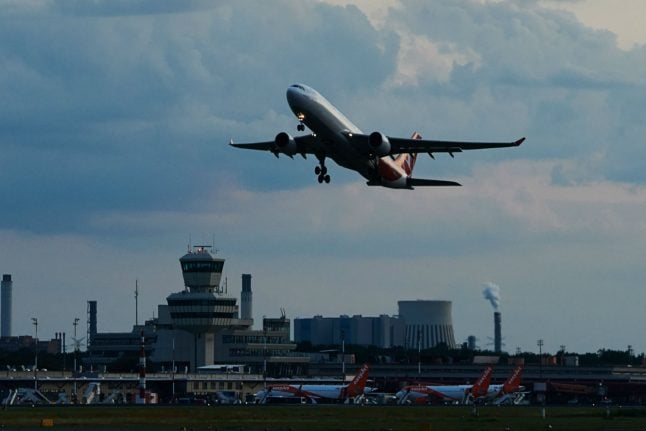The number of flight passengers since the start of “Fridays for Future” – kicked off by Swedish teen activist Greta Thunberg in August 2018 – has gone up over the past year, according to the latest air traffic data from Germany’s Federal Statistics Office.
READ ALSO: Over 200 'Fridays for Future' demos taking place in Germany
In the 12 months between August 2018 and July 2019, there were a total of 125.1 flight passengers, according to the data analyzed by RP Online on Wednesday. That’s up from a total of 119.4 passengers between July 2017 and July 2018.
In April of this year, there were a total of 10.7 million flight passengers, up from 9.8 million in 2018.
The Swedish concept of “Flygskam”, or flight shame, has still taken a hold of many people across the globe.
One in five Americans and Europeans say that are taking at least one flight fewer per year due to climate change concerns, according to a study by 6,000 Americans and Europeans by Swiss Bank UBS.
Nonetheless, the International Air Transport Association (IATA), an umbrella organization of airlines, predicted in September that the number of air travelers will double in two decades.
Cutting costs
Some say that the reason people in Germany have yet to cut back massively on plane travel is the low costs of tickets, especially for domestic and intercontinental flights.
The country currently has an aviation tax, which has been levied since 2011 at rates currently ranging from €7.38 to €41.49, but is still much lower than other EU countries such as neighbouring France.
Several politicians, including German Environment Minister Svenja Schultze, have said that plane flights departing from Germany are therefore “too cheap”, criticizing that domestic flight tickets often cost less than train tickets.
Germany’s Green Party earlier this year proposed a plan to make train travel in the Bundesrepublik so attractive – and affordable – that domestic flights become ‘obsolete’.
READ ALSO: Trains instead of planes: Could domestic flights in Germany really become ‘obsolete’?
The Christian Socialists (CSU), the Bavarian sister party to Merkel's Christian Democrats, have also proposed a “penalty tax” for flights costing less than €50 in an attempt to cut carbon emissions.
Their ideas could soon achieve more wide-reaching support. On Wednesday morning, Germany’s Federal Cabinet adopted its controversial climate packet, through which it aims to reduce greenhouse gasses by 55 percent compared to what they were in 1990.
The law stipulates that individual ministries – including Germany’s Transportation Ministry, which have long resisted specific targets for air travel – are responsible for achieving climate protection targets.
READ ALSO: Could cheap flights in Germany receive a 'penalty tax'?
Vocabulary
Air traffic data – (die) Luftverkehrdaten
flight passengers – (die) Flugpassagiere
increase/rise – (der) Anstieg
propose – vorschlagen
Umbrella organization – (der) Dachverband
We're aiming to help our readers improve their German by translating vocabulary from some of our news stories. Did you find this article useful? Do you have any suggestions? Let us know.



 Please whitelist us to continue reading.
Please whitelist us to continue reading.
Member comments